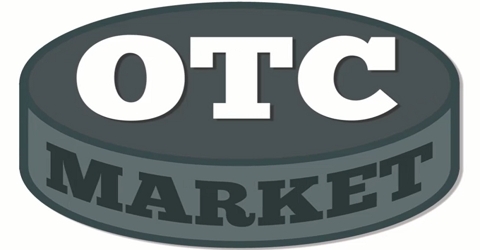Advantages and Disadvantages of Over the Counter Market (OTC)
Over-the-counter (OTC) is the trading of securities between two counter-parties executed outside of formal exchanges and without the management of exchange. In an OTC market, dealers act as market makers by quoting prices at which they will buy and sell a security or currency. OTC markets are mainly used to trade bonds, currencies, derivatives and ordered products.
In an OTC market, dealers act as market-makers by quoting prices at which they will buy and sell a security, currency, or other economic products. Bonds, stocks, as well as non-standard derivatives can be traded by investors on the over-the-counter (OTC) market.
Advantages of OTC
- It provides a trading platform for smaller and less liquid companies as they are not qualified for listing on a standard exchange.
- It is a cost-effective method for corporate as there is a lower cost of new issues and lower expenses of servicing the investors.
- Family concerns and closely held companies can go public through OTC.
- Dealers can operate both in new issues and secondary market at their option.
- It gives greater freedom of choice to investors to choose stocks by dealers for market making in both primary and secondary markets.
- It is a transparent system of trading with no problem of bad or short deliveries.
- Information flows are free and more direct from market makers to customers since there is close contact between them.
- OTC trading is a regular practice in the energy market, representing the biggest volume of electricity market transactions in many countries.
- An OTC market is dissimilar than a customary exchange because it is decentralized and does not take place in one spot. OTC trades take place electronically and directly between two parties.
- For both investors and companies, OTC markets are more cost-efficient than customary stock exchanges. Investors can buy into companies that will shape the world on a more cost-efficient platform.
- The architecture of the OTC market’s helps explain why structured securities faced problems during the latest economic disaster.
- This feature is used to carry out bigger trades unswervingly with a counterparty without having to go through the public order books.
Disadvantages of OTC
- The key risks involved in trading over-the-counter (OTC) stocks stem from lack of dependable information and the fact that OTC stocks are usually very delicately traded markets. Lack of a clearinghouse or exchange results in increased credit or default risk associated with each OTC contract.
- Precise nature of risk and scope is unknown to regulators which leads to increased systemic risk.
- Lack of transparency. Due to the lack of parameter and transparency, manipulation of the electricity market is an intrinsic risk of OTC trading. The price OTC market participants pay for the capability to create modified transactions is illiquidity and a lack of transparency, two factors that have become more extremely problematic than ever since the economic disaster.
- The other major risk in OTC trading is that the market for an OTC-listed stock might be very delicately traded, with enormously large bid-ask spreads that make it very hard to trade beneficially.
While over-the-counter markets remain an important component of worldwide finance, OTC derivatives aspect an outstanding impact. The fewer number of limitations and regulation provides larger flexibility to market participants, which can regulate derivative contracts to better ensemble their risk exposure.
















